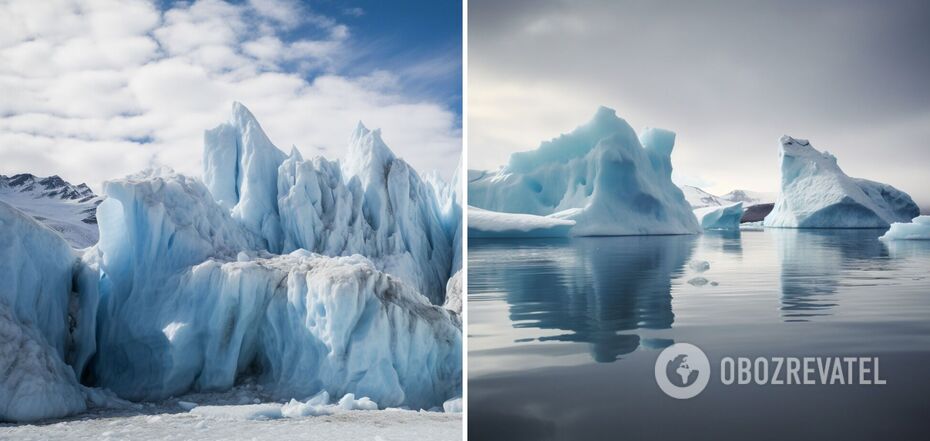Life
Antarctica melting to record levels: scientists don't know what's going on
While Europe and the world suffer through record temperatures, winter has arrived in Antarctica in the Southern Hemisphere, but scientists are watching with alarm. The amount of sea ice, which usually grows during this period, is now at its lowest level in more than 40 years of observations.
About it tells the publication Universe Today with reference to the researchers. Despite long observations and a large amount of data, scientists cannot give a clear answer as to why Antarctica is losing ice and whether this trend is permanent.
Satellite measurements from NASA's National Snow and Ice Data Center (NSIDC) showed that by July this year, sea ice extent averaged just 13.5 million kilometers. This is the lowest since 1978, when ice measurement began.
Normally, Antarctic sea ice covers an area of about 15 million square kilometers. It grows and melts according to the changing seasons, but in 2023, things are not happening as they should. NSIDC scientist Walt Meier said what is happening in Antarctica now is "uncharted territory" for scientists.
At the same time, the beginning of the trend towards a decrease in the amount of ice was recorded back in 2014. This was the last year when ice growth was recorded around the continent, which increased by about 1% per decade. Now it has become the opposite. The first sharp decline was recorded in 2016, and things got worse after that.
Climatologist at NASA's Goddard Space Flight Center Claire Parkinson admits that the situation with the changing amount of ice "is of great interest to scientists with no consensus on the driving forces."
Scientists also note that not only Antarctica is losing ice, but also its northern sister, the Arctic. Although the rate of ice loss in the north is not as high.
The problem of Antarctic ice certainly attracts the attention of scientists because of its most dramatic reduction in the more than 40-year history of satellite observations. So is the rapid loss of ice by Greenland.
As for the reasons for this situation, scientists can only speculate.
The obvious culprit may be global warming affecting the oceans, leading to reduced ice accumulation around Antarctica. Parkinson also suggests that ice levels may be influencing the link to the El Niño-Southern Oscillation (ENSO) effect, the interdecadal Pacific Oscillation or the so-called Amundsen Sea minimum.
Studies examining ice loss in 2016 also put forward the theory that it may not be about global warming, but about conditions in the local atmosphere and ocean around Antarctica. It's about the fact that a strong northerly atmospheric flow was recorded there, which caused the ice in the Weddell Sea (just above West Antarctica) to retreat rapidly, while an extreme El Niño warmed the waters of the Bellingshausen, Amundsen and eastern parts of the Ross Seas.
Therefore, scientists suggest that the loss of ice was triggered not by a single event, but by a combination of several.
But there are no definitive answers to the sea ice mystery yet. Scientists are also not sure whether this is a new trend and the amount of ice will decrease every year, or whether this is a temporary phenomenon.
As Meyer explains, even with 40 years of data, it is too early to say that ice loss is serious and irreversible.
But recent research suggests that ocean heat may play a stronger role than usual. If so, it could limit ice growth in the fall and winter, and then enhance spring and summer episodes of ice melt.
Earlier OBOZREVATEL also told about the fact that scientists have catastrophically miscalculated the melting of glaciers.
Subscribe to OBOZREVATEL channels in Telegram and Viber to keep up with the latest events.





























